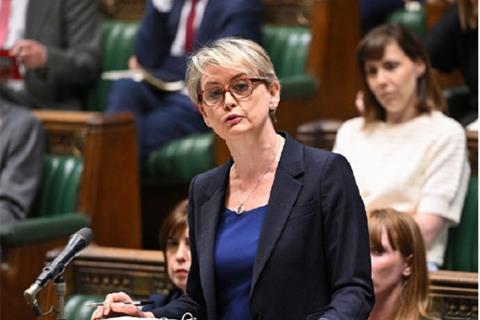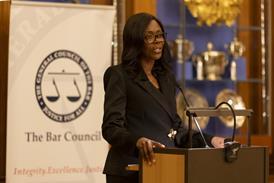On 1 September, then home secretary Yvette Cooper (pictured below) announced the suspension of new applications under the refugee family reunion (RFR) route. This was the dedicated category for those granted refugee or humanitarian protection in the UK to be joined by their partner and children, and imposed relatively few restrictions. This closure will carry significant legal and humanitarian consequences.

It took effect at 3pm on 4 September. Applications submitted before the cutoff will still be assessed under the former rules.
The government has stated the suspension is temporary, with the intention to set out a reformed family migration policy covering all UK residents (including refugees) seeking to bring family members to the UK later this year. Some of these changes should be implemented by next spring. The new policy, as it applies to refugees, may include restrictions such as waiting periods, whereby family members of refugees may be required to wait two years following the sponsor’s grant of refugee status before the family may apply to be reunited in the UK. Conditions relating to income and English language may also apply, although this has yet to be confirmed.

Alongside the suspension of the RFR route, Cooper unveiled a series of immigration reforms. Most notably, asylum appeals will no longer be heard by judges. Instead, cases will be decided by new independent tribunals staffed by ‘professionally trained adjudicators’, designed to resemble the magistrates’ system. Lay members of the public will hear appeals under the supervision of legal specialists. Ministers argue this will speed up asylum and immigration appeals and help clear the backlog.
Cooper also announced expedited entry clearance for seriously injured children from Gaza and their immediate families, and for Chevening scholars and refugee students. A permanent framework for refugee students will follow.
The government has defended the suspension of the RFR route on several grounds. Applications are often submitted immediately after a refugee receives status, sometimes before the sponsor leaves asylum housing, which is considered to contribute to homelessness claims. Ministers have also noted the lack of financial and language requirements for refugee sponsors when compared with stricter rules imposed on British citizens or settled residents seeking to be joined by their families.
Across Europe, governments have introduced similar restrictions, including waiting periods, quotas or temporary suspensions. The UK’s approach is as such consistent with this European trend but has already attracted significant criticism for undermining human rights commitments and family unity.
The closure of the RFR route and renewed focus on reducing the asylum backlog have arisen against the backdrop of strong political headwinds. The government faces mounting external political pressures, rising public frustration over asylum hotel usage and small boat crossings, and internal dissent around immigration strategy. It is not unreasonable to conclude, therefore, that the suspension of the RFR route appears to be motivated by demonstrating a firmer approach to migration issues rather than representing a considered and comprehensively assessed policy position.
Until the government’s new family migration policy is implemented, family members of refugees must use other legal routes to come to the UK, principally the family life provisions of the Immigration Rules. Applicants under this route must normally show an annual income of £29,000, demonstrate adequate accommodation and satisfy English language requirements.
Those who cannot meet these requirements may alternatively apply on the basis of ‘exceptional circumstances’, but if successful, will be placed on a 10-year route to settlement rather than the current standard five-year pathway. This will impose a disproportionate burden and longer period of uncertainty for families, many of whom will be in vulnerable and financially challenging circumstances.
Refugee support organisations have warned that removing the RFR route cuts off one of the few safe, legal routes for vulnerable families to enter the UK, particularly women and children from conflict zones. It is argued that these changes will, in fact, push people toward dangerous journeys and undermine efforts to combat trafficking and irregular migration, conflicting with the government’s stated policy objectives.
Critics have also highlighted that the government’s position risks potential breaches of Article 8 of the European Convention on Human Rights, which protects the right to family life. The former home secretary Lord Blunkett has warned that the suspension risks conflicting with established human rights standards.
The suspension of the RFR route marks an extraordinary shift in UK asylum and family migration law. While the government has sought to justify its position on the grounds of sustainability, fairness and control, it raises pressing and justifiable concerns about legality, proportionality and humanitarian cost.
Matthew Wills is a partner and Wilfrid Boon a solicitor at Laura Devine Immigration, London





























No comments yet